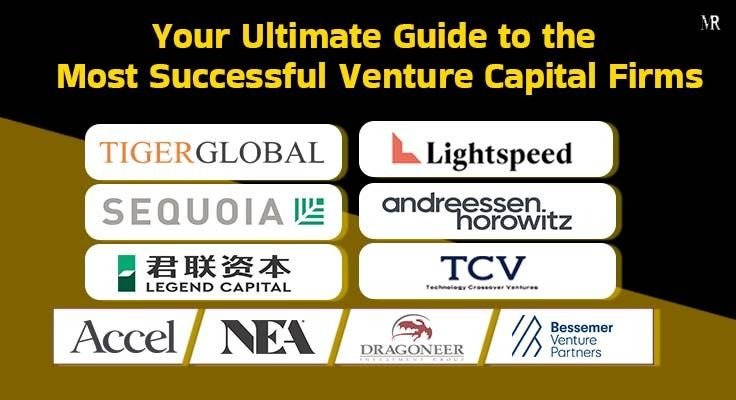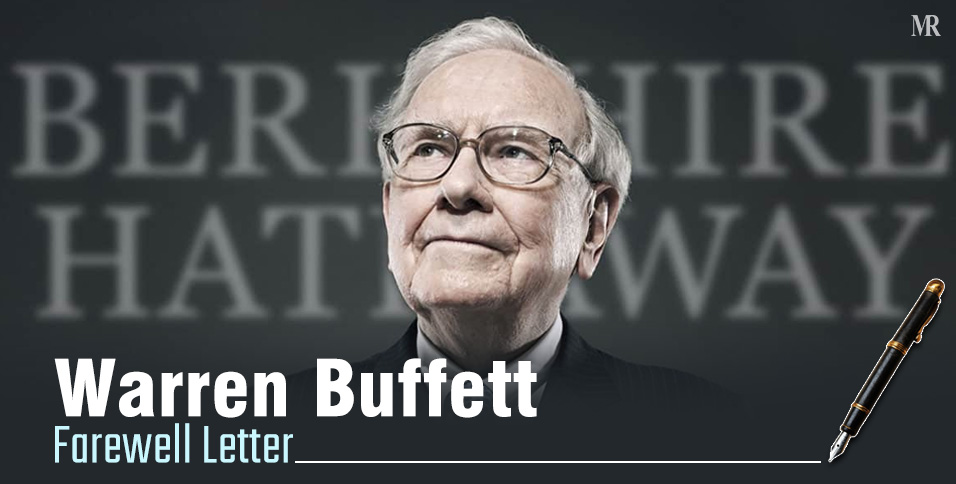“Venture capital firms are the backbone of innovation, transforming bold ideas into thriving businesses.” Whether you’re a budding entrepreneur or an investor, this blog is your ultimate guide to understanding everything you need to know about VC firms.
So, are you ready to see which venture capital firms are changing the startup game in 2024? Let’s know how these firms empower the next generation of innovators from seed funding to strategic guidance.
What is venture capital?
Venture Capital (VC) is a form of private equity financing provided by firms or funds to startup, early-stage, and emerging companies. These companies have been believed to have high growth potential or have already shown significant growth in factors like the number of employees, annual revenue, and scale of operations. Venture capital firms are like a way for promising companies to get the financial boost they need to grow and succeed.
How do venture capital firms work?
We all know, VC firms provide financing, technological expertise, and managerial experience to these companies. But do you know how they work? Well, the startups seeking funding approach VC firms.
After due diligence, VC firms invest money in the startup in exchange for an ownership stake. It is usually less than 50%. In return, startups gain access to the VC’s network of partners, experts, and future fundraising assistance. VC firms raise money from limited partners (LPs) to invest in promising startups or larger venture funds.
Let’s have a look at the process of it! Firstly, startups pitch their ideas to venture capitalists. Then, venture capital firms evaluate the potential of the startup, its founders, and the market. And, if the fit is right, the VC firm provides funding and ongoing support.
The goal is to help the startup grow and succeed over several years. Therefore, venture capital isn’t just about money, it’s about strategic guidance and long-term partnership!
Types of venture capital funds
As we know, venture capital plays, an important role in supporting startups and established companies. Venture capital funds tend to follow a single idea that targets a specific market section or investment stage. Whether you’re an aspiring entrepreneur or an investor, understanding these aspects of venture capital is key to guiding you through the complicated world of business finance! Let’s know the different types of VC funding.
- Seed Financing
This type of funding is for early-stage startups. It is often at the idea or concept stage. Moreover, it provides initial capital to get the business started.
- Startup Financing
Once a startup has an achievable product or service, it enters this stage. Startup funding helps slightly more established businesses, ready to market their offering.
- First-Stage Financing
This supports companies in the early stages of selling their products. First-stage financing is all about growth and expansion.
- Second-Stage Financing
As businesses grow, they may desire this funding for, further expansion of their business. Moreover, it’s like a bridge to cover short-term needs while preparing for significant events like an initial public offering (IPO).
- Third-Stage or Mezzanine Financing
This financing is often used for further expansion of the business. Also, it’s of great help to prepare a company for investment or IPO.
- Acquisition or Buyout Financing
This helps the businesses achieve specific assets or other companies. This financing is also used to buy out a company’s existing owners.
Difference between venture capital firm v/s venture capital fund
| Venture Capital Firm | Venture Capital Fund |
| A VC firm is an organization that manages and oversees investments in startups and high-potential companies. | A VC fund is a specific pool of money within a VC firm. |
| VC firms are made up of experienced investors, analysts, and other professionals who evaluate investment opportunities. | This fund is dedicated to investing in companies seeking capital. |
| They analyze innovative and disruptive ventures with the potential for rapid growth. | When a VC firm identifies a promising startup, they allot money from the fund to invest in that company. |
| They are the ones who find promising startups and decide whether to invest in them. | The fund is separate from the VC firm but managed by the same team. |
| VC firms pool money from various sources (like pension funds, wealthy individuals, and corporations) to create a fund. | It’s like having a separate wallet for specific purposes. Here, it is investing in startups. |
List of the largest venture capital firms in 2024
| 1 | Tiger Global Management |
| 2 | Sequoia Capital |
| 3 | Andreessen Horowitz |
| 4 | Legend Capital |
| 5 | New Enterprise Associates (NEA) |
| 6 | Lightspeed Venture Partners |
| 7 | Dragoneer Investment Group |
| 8 | Technology Crossover Ventures |
| 9 | Bessemer Venture Partners |
| 10 | Accel |
Top 5 venture capital firms
1. Tiger Global Management
- Founder: Chase Coleman
- Headquarters: New York, USA
- Year Of Establishment: 2001
- Assets Under Management (Aum): $58.515 Billion
Tiger Global Management is one of the top venture capital firms in the world. Therefore, they play an important role in supporting startups and fueling innovation. The company has made around 1176 investments in total. Tiger Global stands out for its strategic investments in high-potential startups globally.
Moreover, they focus on industries like software, FinTech, and e-commerce. Notably, they’ve had successful exits with companies like SoftBank, Redfin, and Alibaba Group. Interestingly, Tiger Global has the highest count of unicorn companies which are the startups that are valued at over $1 billion in their portfolio of 209 in total! That’s impressive!
Tiger Global Management focuses on serving through long-term investing in both public and private companies that leverage technological innovation. Indeed, they’re a key player in pushing innovation and increasing the growth of promising enterprises on a global scale. Also, their investments span sectors, like the internet, technology, telecom, media, consumer, and industrial.
2. Sequoia Capital
- Founder: Don Valentine
- Headquarters: Menlo Park, California, USA
- Year Of Establishment: 1972
- Assets Under Management (Aum): $55.7 Billion
Sequoia Capital helps daring founders build legendary companies from their initial idea to going public (IPO) and beyond. Notably, they have served 250 technology companies. They’re like the architects who support startups in constructing their dreams. Sequoia invests in seed, early, and growth stages of startups. Furthermore, they specialize in technology sectors, including energy, finance, enterprise, healthcare, internet, and mobile.
Since 1972, Sequoia has backed many companies including Apple, Google, Electronic Arts, Yahoo!, and Instagram. That’s an impressive track record! Isn’t it? However, Sequoia isn’t just in the US, they have offices in Israel, India, Singapore, China, and Hong Kong. They support startups worldwide.
Interestingly, Sequoia’s partners have deep industry connections adding to the extensive networks and experience. Also, they actively mentor founders, providing strategic guidance beyond just funding. Therefore, Sequoia encourages startups to push the boundaries of what’s possible. In other words, they believe in bold ideas and innovation.
3. Andreessen Horowitz
- Founder: Marc Andreessen
- Headquarters: Menlo Park, California
- Year Of Establishment: 2009
- Assets Under Management (AUM): $52.3 Billion
Andreessen Horowitz was founded, by Marc Andreessen and Ben Horowitz. These visionary entrepreneurs have deep roots in the tech industry. Moreover, they invest in bold founders, innovators, and entrepreneurs who are shaping the future through technology. Also, they invest in various sectors, including bio + healthcare, artificial intelligence, consumer, crypto, enterprise, fintech, games, and infrastructure.
Andreessen Horowitz stands out for its cultural leadership fund, which focuses on investing in underrepresented minorities in tech. Besides, they actively promote diversity and inclusion. Additionally, they have a strong priority on talent, and opportunity, seeking out founders who are passionate about solving big problems.
Well, all this adds to Andreessen Horowitz becoming one of the top venture capital firms in the world. Undoubtedly, Andreessen Horowitz provides more than just capital. Andreessen Horowitz invests across various stages like seed, start-ups, early, mid-stage, and growth. Nevertheless, they offer mentorship, networking, and strategic guidance to the companies they invest in.
4. Legend Capital
- Founder: Zhu Linan
- Headquarters: Beijing, China
- Year Of Establishment: 2001
- Assets Under Management (Aum): $48.141 Billion
Legend Capital focuses on the quality of initial public offerings (IPOs) rather than sheer quantity. Undoubtedly, their 100th IPO milestone is noteworthy. Richard Li, President of Legend Capital, highlights the importance of investment expertise. Certainly, the team’s deep roots in technology investment have led to successful IPOs for companies like Lunit, R&G Pharmastudies, and MicuRx Pharmaceuticals.
Unlike many others in the market, Legend Capital operates with a unique feature, it is well-versed in both the USD fund system and local investment using the RMB fund. Moreover, this dual currency approach allows them to navigate global markets while maintaining a strong foothold in China’s tech geography.
Since their investment in iFLYTEK back in 2001, Legend Capital has systematically backed early-stage tech innovators. Their portfolio includes industry leaders in new energy, semiconductors, life sciences, and new materials, such as Spreadtrum, CATL, and WuXi AppTec. Also, Legend Capital has nurtured over 100 unicorn companies which are those valued at over $1 billion.
Importantly, these companies span various sectors, leaving a significant footprint in technology investment. Their expertise, gathered over two decades, enables them to understand China’s technology world intensely and build a powerful ecosystem around it. Therefore, Legend Capital’s blend of currency expertise, commitment to early-stage innovation, and impressive unicorn track record sets them apart from the other venture capital firms in the market.
5. New Enterprise Associates (NEA)
- Founder: Dick Kramlich, Chuck Newhall, And Frank Bonsal
- Headquarters: Menlo Park, California, USA
- Year Of Establishment: 1977
- Assets Under Management (Aum): $25.9 Billion
New Enterprise Associates (NEA) is one of the global venture capital firms. Interestingly, they focus on helping entrepreneurs build transformational businesses across various stages, sectors, and geographies. Undoubtedly, NEA invests in technology and healthcare companies from the seed stage through IPO.
In addition, NEA demonstrates a strategic focus on early-stage investments in technology and healthcare. Also, they highlight sectors like artificial intelligence (AI), software, and biotechnology. NEA provides venture capital to both early-stage companies and venture growth equity opportunities. Thus NEA has an impressive track record, including over 270 portfolio company IPOs and 450+ mergers and acquisitions.
Notably, they led a Series F investment round for Clio, a legal technology leader, raising $900 million at a $3 billion valuation. In simple terms, NEA invests early, thinks globally, and collaborates across disciplines to push innovation. Also, their work spans from time-saving technologies to life-saving therapies, making a difference in the world of startups and beyond!
Private Equity (PE) v/s Venture Capital (VC)
| Private Equity (PE) | Venture Capital (VC) |
| Private Equity involves investing in established, mature companies that operate in traditional industries. | Venture Capital focuses on funding startups and young, high-growth potential companies. |
| PE firms typically target companies facing operational inefficiencies. They aim to correct these inefficiencies and make the companies profitable. | VC firms provide funding to companies with rapid growth prospects, especially in tech and innovation. |
| These firms often take a majority stake (50% or more) in the companies they invest in. | These firms take a minority stake (less than 50%) in these startups. |
| PE firms get involved with companies that are already well-established. | VC firms get involved during the early stages of a company’s lifecycle. |
| Example: Imagine a PE firm investing in an older manufacturing company to improve its operations and profitability. | Example: Think of a VC firm investing in a promising tech startup that aims to disrupt an industry. |
End Note
As we conclude, we realize that the venture capital firms on this list are not just funding startups but are building the future. Whether starting a new venture or looking to invest in the next big idea, now is the time to reach out and make those connections.
I am sure this blog was informative enough for you to know everything about venture capital firms. So, learn from their strategies, and take your business journey to new heights! Also, share this blog with all your friends, and together make your entrepreneurial dreams a reality today!
FAQs
Which is the most prestigious venture capital firm?
Sequoia Capital attracts the most investors and is understood to be the most prestigious VC firm in the world.
Is Shark Tank a venture capital firm?
The shark tank is not a venture capital firm, but the sharks are venture capitalists. In short, this means that they are self-made millionaires and billionaires who seek profitable business investment opportunities.
Which are some of the most challenging yet popular industries, that venture capital firms invest in?
Biotechnology and pharmaceuticals, clean energy, space exploration, hardware manufacturing, healthcare services, education technology (EdTech), food and beverage, blockchain, and cryptocurrency are some of the most challenging yet popular industries, in which venture capital firms invest.












